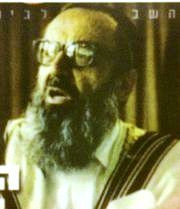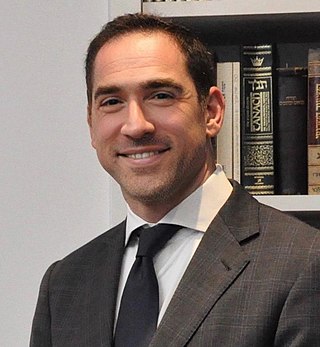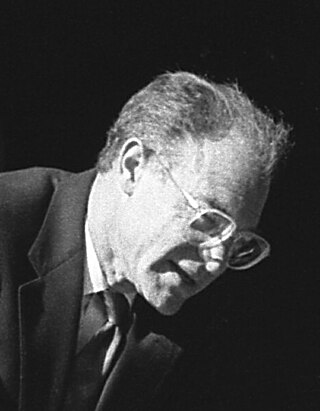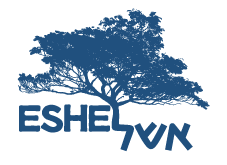
The subject of homosexuality and Judaism dates back to the Torah. The book of Vayikra (Leviticus) is traditionally regarded as classifying sexual intercourse between males as a to'eivah that can be subject to capital punishment by the current Sanhedrin under halakha.

Shlomo Riskin is an Orthodox rabbi, and the founding rabbi of Lincoln Square Synagogue on the Upper West Side of New York City, which he led for 20 years; founding chief rabbi of the Israeli settlement of Efrat in the Israeli-occupied West Bank; former dean of Manhattan Day School in New York City; and founder and Chancellor of the Ohr Torah Stone Institutions, a network of high schools, colleges, and graduate Programs in the United States and Israel.

Persian Jews or Iranian Jews are a minority community descended from the Jewish people who were historically associated with the Achaemenid Persian Empire. With their presence in Iran dating back to the biblical era, they constitute one of the oldest communities of the Jewish diaspora. Books of the Hebrew Bible — Esther, Isaiah, Daniel, Ezra, and Nehemiah — contain references to the life experiences of Jews living in ancient Persia. Jews have had a continuous presence in Iran since at least the time of Cyrus the Great, who led the Persian army's conquest of the Neo-Babylonian Empire and subsequently freed the Judahites from the Babylonian captivity.

Shlomo Moshe Amar is the former Sephardic Chief Rabbi of Israel. He served in the position of Rishon LeZion from 2003 to 2013; his Ashkenazi counterpart during his tenure was Yona Metzger. In 2014 he became the Sephardic Chief Rabbi of Jerusalem.
Jewish feminism is a movement that seeks to make the religious, legal, and social status of Jewish women equal to that of Jewish men in Judaism. Feminist movements, with varying approaches and successes, have opened up within all major branches of the Jewish religion.

Hakham Uriel Davidi was a famous Jewish (Judæo-Khunsari) religious leader and theologian, who was born in Khansar (Iran) and died in the Neve Yaakov section of Jerusalem, Israel, where he spent the last 12 years of his life. He was descended from a long line of rabbis who preceded him in leading the Jewish community in Iran.
Conservative Judaism views halakha as normative and binding. The Conservative movement applies Jewish law to the full range of Jewish beliefs and practices, including thrice-daily prayer, Shabbat and holidays, marital relations and family purity, conversion, dietary laws (kashrut), and Jewish medical ethics. Institutionally, the Conservative movement rules on Jewish law both through centralized decisions, primarily by the Rabbinical Assembly and its Committee on Jewish Law and Standards, and through congregational rabbis at the local level. Conservative authorities produced voluminous Responsa literature.

Yedidia Shofet was the former Chief Rabbi of Iran and the worldwide spiritual leader of Persian Jewry.
Sexual orientation has been a pivotal issue for Conservative Judaism since the 1980s. A major Jewish denomination in the U.S., Conservative Judaism has wrestled with homosexuality and bisexuality as a matter of Jewish law and institutional policy. As with other branches of Judaism debating the acceptability of sexual orientations other than heterosexuality, Conservative Jews faced both long-standing, rabbinic prohibitions on homosexual conduct as well as increasing demands for change in the movement's policies toward gays, bisexuals, and lesbians. Previously, the Conservative movement had changed its policies toward women, for example, by allowing the ordination of women as rabbis in 1983. Similarly, the Conservative leadership has been asked to stop discriminating against gay, bisexual, and lesbian people. This goal has been partially completed with the approval of the ordination of gay, bisexual, and lesbian rabbis in 2006 and of same-sex marriage ceremonies under Jewish law in 2012; However, the Conservative decision did not call same-sex marriages kiddushin, the traditional Jewish legal term for marriage, because that act of consecration is nonegalitarian and gender-specific. In the traditional kiddushin ceremony, a pair of blessings is recited and the bridegroom gives his bride a ring, proclaiming that he is marrying his bride “according to the laws of Moses and Israel.”.
30 Years After was founded in 2007 as a nonprofit, non-partisan organization for the Iranian-American Jewish community. The missions of the organization are education and political and community involvement.
Congregation Or Chadash was a Reform LGBT-oriented congregation in the Edgewater neighborhood of Chicago, Illinois. It was founded in 1975 as a gay support group for Jews, and was holding religious services by 1976. It moved into its first building, a former Unitarian church on West Barry Avenue in 1977, and hired its first permanent rabbi, Suzanne Griffel, in 1997.

Joseph Dweck is the senior rabbi of the S&P Sephardi Community of the United Kingdom.

Jews in Los Angeles comprise approximately 17.5 percent of the city's population, and 7% of the county's population, making the Jewish community the largest in the world outside of New York City and Israel. As of 2015, over 700,000 Jews live in the County of Los Angeles, and 1.232 million Jews live in California overall. Jews have immigrated to Los Angeles since it was part of the Mexican state of Alta California, but most notably beginning at the end of the 19th century to the present day. The Jewish population rose from about 2,500 in 1900 to at least 700,000 in 2015. The large Jewish population has led to a significant impact on the culture of Los Angeles. The Jewish population of Los Angeles has seen a sharp increase in the past several decades, owing to internal migration of Jews from the East Coast, as well as immigration from Israel, France, the former Soviet Union, the UK, South Africa, and Latin America, and also due to the high birth rate of the Hasidic and Orthodox communities who comprise about 10% of the community's population.

The Nessah Synagogue is a Sephardic synagogue in Beverly Hills, California.

Zvi Dershowitz was a Czech-born American rabbi whose tenure included 50 years serving Sinai Temple in Los Angeles.

Harvey J. Fields (1935–2014) was an American Reform rabbi. He served as the rabbi of Holy Blossom Temple in Toronto, the largest synagogue in Canada, from 1978 to 1982. He then served as the rabbi of Wilshire Boulevard Temple, the oldest synagogue in Los Angeles, from 1985 to 2003.

Alissa Thomas-Newborn is an American Orthodox Jewish spiritual leader who became the first Orthodox female clergy member to preside in the Los Angeles, California area when she assumed her post as a spiritual leader at B’nai David-Judea Congregation (BDJ) in August 2015. The announcement of her appointment came on May 2, 2015 from the pulpit by the lead clergyman of the synagogue, Rabbi Yosef Kanefsky.
Ezri Namvar is an Iranian-born Jewish American businessman, philanthropist and convicted criminal. He was the founder and chairman of Namco Capital Group, an asset management firm based in Los Angeles, California. In the wake of the financial crisis of 2007–08, he was sued by his investors, forced to declare bankruptcy, leading to "$1 billion in claims" from investors. He was jailed for seven years in 2011.
This is a timeline of LGBT Jewish history, which consists of events at the intersection of Judaism and queer people.

Eshel is a nonprofit organization in the United States and Canada that creates community and acceptance for lesbian, gay, bisexual, and transgender (LGBTQ+) Jews and their families in Orthodox Jewish communities. Eshel provides education and advocacy, a speaker's bureau, community gatherings, and a social network for individuals and institutions. It was founded in 2010 to provide hope and a future for LGBTQ+ Jews excluded from Orthodox and Torah observant communities.













